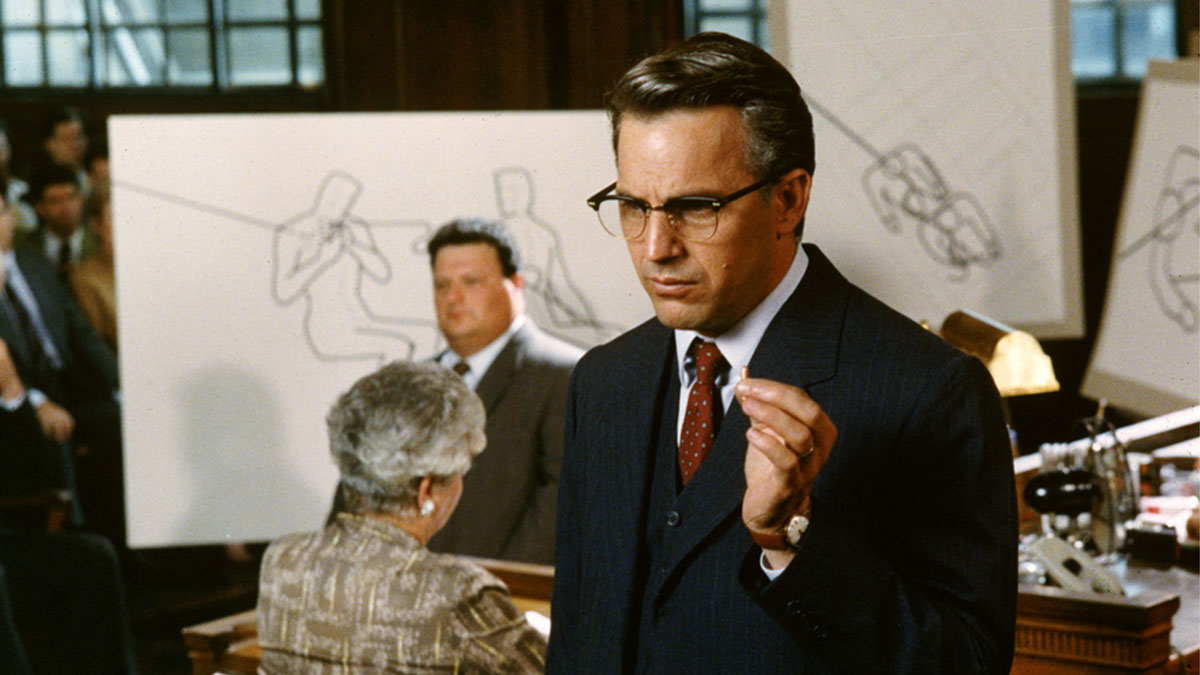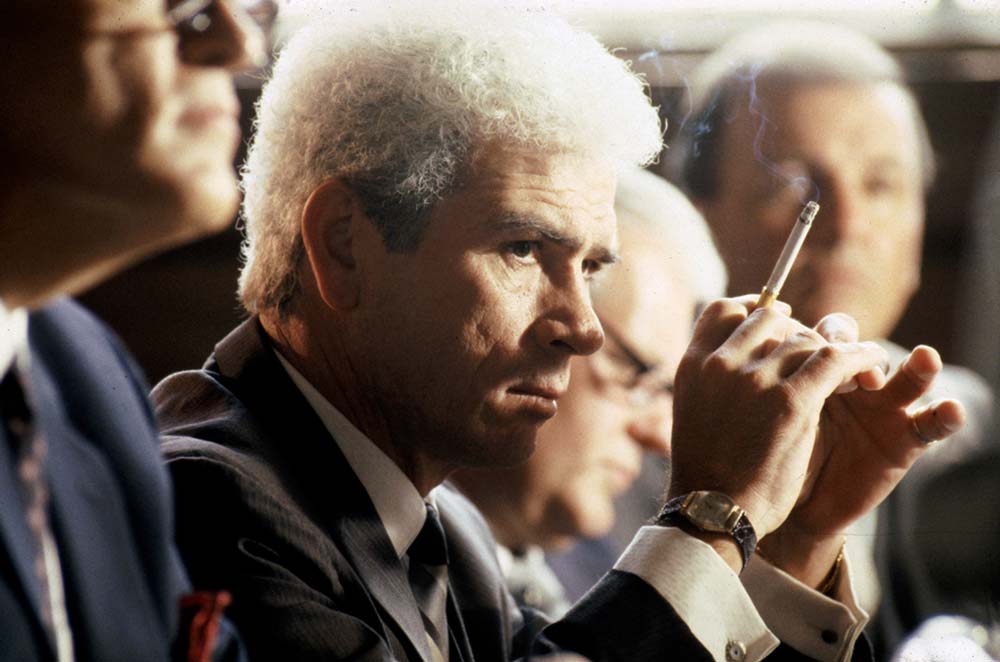
(C)2016 Twentieth Century Fox Home Entertainment LLC. All Rights Reserved.
``JFK'' orchestrated bashing, Oliver Stone's challenge to Kennedy assassination Part 1
2021.01.01
Make “JFK” an all-star movie!
After the first draft of the script was written, the next step was casting. Stone considered Harrison Ford, Dennis Quaid, Jack Nicholson, Alec Baldwin, and Gene Hackman for the role of Garrison. He had a wide age range in mind, so the candidates ranged from young actors to veterans.
As Stone's image began to solidify, actors who symbolized the American conscience, like Gary Cooper or James Stewart, seemed like the right choice for the role, and the names that emerged were Kevin Costner, Michael Douglas, Robin Williams, Michael Keaton, Mel Gibson, John Malkovich, and Robert De Niro.
The script was sent to Harrison Ford and Kevin Costner as first choices, as they were deemed the '90s equivalent of Gary Cooper and James Stewart.
Ford, who had just finished filming Presumed Innocent (1990) (where he also competed with Costner for the lead role), showed no interest at all. One story goes that he had already been booked to star in Patriot The Game (1992) as CIA intelligence analyst Jack Ryan, and said there was no way he could star in a film that claimed the CIA was involved in the Kennedy assassination. It was also said, as if tossing the script aside, that he had muttered, "I never thought there was a conspiracy," but the veracity of this is unclear.
Meanwhile, Kevin Costner also declined the role, citing the difficulty of playing a real person. He had already played the role of Bureau of Probation agent Eliot Ness in " The Untouchables " (1987), but he was also worried about how to fill the gap between the real person and the role. In addition, he had promised his wife that he would take three or four months after the filming of " Robin Hood: Prince of Thieves " (1991) following his directorial work " Dances with Wolves " (1990) to recharge.
“The Untouchables” trailer
But Stone did not give up. In fact, he could say he clearly identified his target. He was convinced that Costner was the right man for the role of Garrison. He went to London to visit Costner while he was filming Robin Hood: Prince of Thieves to try to persuade him, and when Costner expressed dissatisfaction with the script, Stone returned two or three weeks later with a revised version. When he discovered that Costner and his wife's vacation commitments were an obstacle to him appearing in the film, Stone broke the rules by sending the original novel and the script to his wife, winning her over. As a result, even Costner's wife was tasked with persuading him to appear in the film, saying, "This is something we absolutely have to do."
Costner met with Garrison himself as well as his critics to find out how he should act, and finally accepted the role in "JFK" in January 1991. Two months later, at the 63rd Academy Awards, "Dances with Wolves" won seven awards, including Best Picture and Best Director for Costner. "JFK" caught Costner's eye, as if he had a premonition of the moment when his career was about to peak.
Once the lead actor was chosen, Warner was so relieved that they did not want to use high-paid actors in the supporting cast, but Stone was adamant about using well-known actors. This is because he envisioned "JFK" as an all-star movie like " The Longest Day " (1962). Even though Stone's direction and elaborate imagery and editing were used, most of the movie was about the investigation of testimony and the trial. In order to avoid boring the audience and to make them remember the complicated story that intertwines the present and the past after just one viewing, it is best to use actors who are well-known. It also provides a sense of security at the box office.
Various possibilities were explored for the supporting roles, with an all-star cast in mind. Marlon Brando was considered for the role of Mr. X, which Donald Sutherland played. Big names such as Gregory Peck, Michael Douglas, Paul Newman, Peter O'Toole, and Roy Scheider were considered for the role of Clay Shaw, but the final choice was Tommy Lee Jones, who had not yet become famous.

He was nominated for an Academy Award for Best Supporting Actor for this film, and won the same award two years later for The Fugitive (1993). His appearance in JFK was truly a major turning point for him. He was initially considered for a different role, but Stone eventually said, "If you can make the hair white, how about Tommy Lee Jones as Clay Shaw?", and he ended up getting the big role. Since they were expecting a big name actor, it was a surprising choice for those around him, but Jones, who will be playing the mysterious Clay Shaw, lived up to the offer and left a strong impression.
There were plans to cast the lead actors from Stone's Vietnam films, such as Charlie Sheen and Tom Cruise, in the role of Lee Harvey Oswald, but like Clay Shaw, a talented young actor was chosen for the role - Gary Oldman.
The film also saw the casting of leading actors Jack Lemmon, Walter Matthau, Kevin Bacon, John Candy, and Joe Pesci, but Stone was concerned that their salaries might rise too much, so he got everyone to agree to a flat salary.
This was because there was concern that if the production costs, which had ballooned to $40 million, went any higher, it would have a negative impact on the future, as it was his first film with Warner Bros. In that respect, Stone was also a calculating businessman. In fact, there were many directors in Hollywood who were notorious for overspending and had no prospect of making their next film. But that doesn't mean Stone was simply being stingy with the production costs. There was one scene in which he wanted to invest a generous budget: the moment Kennedy was assassinated.

